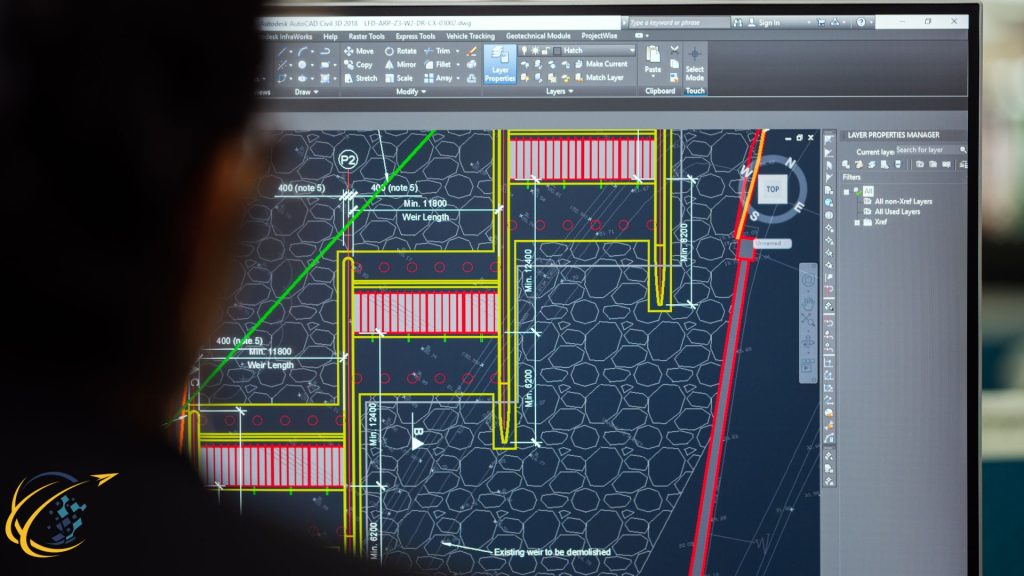AI-Powered Software Engineering is transforming the way businesses approach software development. By integrating artificial intelligence into the development process, companies are streamlining workflows, enhancing code quality, and accelerating time-to-market. As this technology becomes more sophisticated, it’s clear that AI-Powered Software Engineering is not just a trend but a foundational shift in the industry.
The use of AI in software engineering is opening up new possibilities. It allows developers to automate repetitive tasks, reduce errors, and optimize performance. By incorporating AI tools into their processes, businesses are improving productivity and driving innovation in ways previously unimaginable. For companies seeking to remain competitive, embracing AI-Powered Software Engineering is essential.
Enhancing Code Quality with AI
One of the primary benefits of AI-Powered Software Engineering is its ability to improve code quality. AI tools, such as GitHub Copilot, are now capable of generating code snippets, identifying potential bugs, and suggesting optimizations. This assistance not only accelerates the development process but also ensures that the resulting code is more robust and reliable.
Transitioning from traditional coding practices to AI-driven development allows teams to catch issues early in the development cycle. This early detection reduces the need for extensive debugging later, saving both time and resources. Additionally, AI can learn from past projects, continuously improving its recommendations and further enhancing code quality over time.
AI tools also assist in maintaining large codebases. As software systems grow in complexity, maintaining them becomes increasingly challenging. AI can analyze these systems, identify redundancies, and suggest refactoring opportunities. This ongoing optimization is crucial for maintaining the long-term health of software systems, ensuring they remain scalable and efficient.
Automating Repetitive Tasks
Another significant advantage of AI-Powered Software Engineering is the automation of repetitive tasks. Developers often spend a considerable amount of time on mundane activities such as writing boilerplate code, conducting tests, and managing deployments. AI can automate these tasks, allowing developers to focus on more strategic aspects of development.
For instance, AI can automatically generate unit tests, ensuring that new code integrates seamlessly with existing systems. By automating this process, businesses can significantly reduce the risk of integration issues, which are common in complex projects. Moreover, AI can monitor the development process, providing real-time feedback and suggestions to optimize workflows.
This level of automation also extends to deployment. AI-driven tools can manage continuous integration and continuous deployment (CI/CD) pipelines, ensuring that code changes are automatically tested and deployed. This not only accelerates the deployment process but also minimizes the chances of human error, leading to more stable and reliable software releases.
Accelerating Time-to-Market
Time-to-market is a critical factor in the success of any software product. AI-Powered Software Engineering significantly shortens development cycles, allowing businesses to bring products to market faster. By automating routine tasks and improving code quality, AI frees up developers to focus on innovation and feature development.
The ability of AI to rapidly generate and test code also means that teams can iterate more quickly. This agility is particularly important in today’s fast-paced market, where the ability to respond to customer feedback and market changes can determine a product’s success. With AI, businesses can continuously deliver updates and improvements, keeping their products competitive.
Additionally, AI can assist in project management by analyzing data from past projects and predicting potential roadblocks. This predictive capability enables teams to proactively address issues before they escalate, further accelerating the development process. As a result, AI-Powered Software Engineering not only improves the speed of development but also enhances the overall quality of the final product.
Fostering Innovation and Creativity
AI-Powered Software Engineering is also fostering innovation by enhancing developer creativity. With AI handling routine tasks, developers have more time and mental space to experiment with new ideas and approaches. This freedom to innovate is leading to the creation of more sophisticated and feature-rich software solutions.
Moreover, AI can assist in exploring new programming paradigms and technologies. By analyzing vast amounts of data, AI can identify emerging trends and suggest novel approaches that developers might not have considered. This ability to think outside the box is helping businesses stay ahead of the curve in an increasingly competitive landscape.
In addition to aiding in the development process, AI is also driving innovation in the tools and frameworks that developers use. AI-driven development environments are becoming more intuitive and responsive, adapting to the needs of individual developers. This personalization is helping to create more efficient and enjoyable development experiences, which in turn drives greater creativity and innovation.
Addressing the Challenges of AI-Powered Software Engineering
While the benefits of AI-Powered Software Engineering are substantial, there are challenges that businesses must address to fully realize its potential. One of the primary concerns is the need for skilled professionals who can effectively leverage AI tools. As AI technology evolves, the demand for developers with expertise in both AI and traditional software engineering is increasing.
Another challenge is the integration of AI into existing development processes. Many businesses have established workflows that may not be immediately compatible with AI-driven tools. Transitioning to AI-Powered Software Engineering requires careful planning and change management to ensure that teams can adapt to the new technology.
Data privacy and security are also critical considerations. AI systems rely on large datasets to function effectively, and managing these datasets in a secure and compliant manner is essential. Businesses must ensure that their AI tools are configured to protect sensitive information and adhere to relevant regulations.
Despite these challenges, the advantages of AI-Powered Software Engineering make it a worthwhile investment for businesses looking to innovate and stay competitive. By addressing the challenges head-on and investing in the necessary skills and infrastructure, companies can unlock the full potential of AI in software development.
Conclusion
AI-Powered Software Engineering is transforming the software development landscape, offering businesses unprecedented opportunities to enhance productivity, improve code quality, and accelerate time-to-market. As AI continues to evolve, its role in software engineering will only grow, making it an essential tool for businesses looking to innovate and stay ahead of the competition. By embracing AI-Powered Software Engineering, companies can not only streamline their development processes but also foster a culture of innovation and creativity that drives long-term success.


